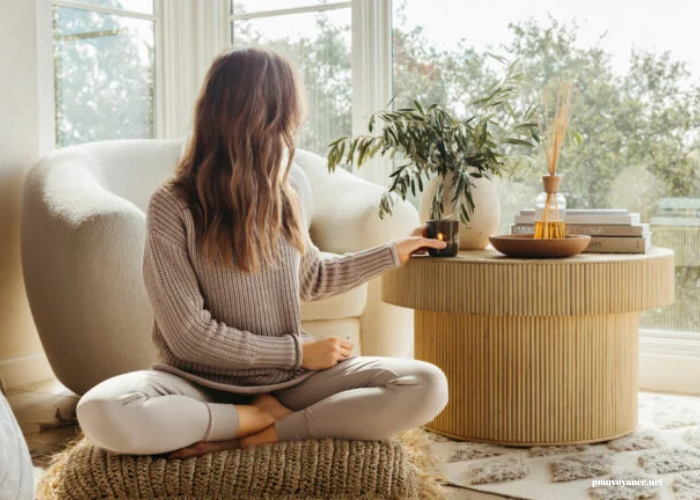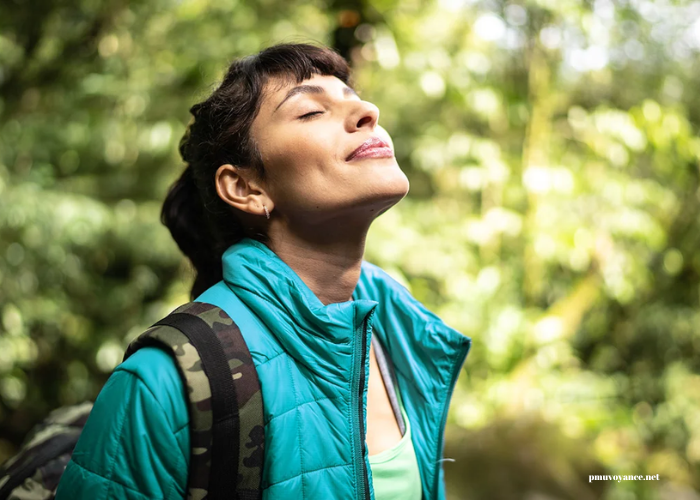In a world that seems to value excess, consumerism, and the constant pursuit of more, minimalism has emerged as a refreshing and powerful counter-movement. It’s not just about reducing clutter or living with fewer possessions; it’s a way of life that encourages intentionality, mindfulness, and the pursuit of meaning over material wealth. Minimalism, at its core, is about reclaiming our time, energy, and resources to focus on what truly matters. This article will explore the philosophy of its benefits, and how to adopt this lifestyle in a meaningful way.
The Origins of Minimalism
Minimalism as a lifestyle has deep roots in history and culture. While the term has gained popularity in recent years, the concept is not new. Ancient philosophies such as Stoicism, Buddhism, and the teachings of various religious figures have long promoted the idea of living simply and finding contentment in less. The Stoics, for example, encouraged individuals to focus on inner virtue and self-discipline, often advocating for a life free from excess.
Buddhism also emphasizes simplicity, teaching that attachment to material possessions is a source of suffering. The minimalist approach, then, can be traced back to these ancient teachings that highlight the pursuit of inner peace, self-awareness, and mindfulness through the act of letting go of unnecessary things.
In the modern era, it has become more than just a philosophical idea; it is now a practical lifestyle that challenges the norms of materialism. The rise of minimalist icons such as Marie Kondo and Joshua Becker has brought minimalism into mainstream culture, inspiring millions to declutter their lives and focus on what truly matters. However, this is more than just about cleaning out your closet. It’s about redefining priorities, values, and the meaning of success.
The Philosophy Behind Minimalism
At its essence, it is about living with intention. It’s the practice of removing anything that distracts from what adds value to your life. This does not only refer to material possessions but also includes relationships, habits, and activities. Minimalism urges individuals to ask themselves: What is truly important to me?
By eliminating the superfluous, we make space for the meaningful. A minimalist lifestyle encourages focusing on quality over quantity in every area of life. Whether it’s the clothes we wear, the technology we use, or the people we surround ourselves with, its promotes a thoughtful approach to making decisions that align with our core values.
Minimalism also emphasizes mindfulness. It pushes back against the constant noise and distractions of the modern world. In doing so, it helps individuals reconnect with themselves and become more present in their day-to-day lives. Whether it’s practicing mindfulness in how we spend our time or being conscious of our consumption, it’s provides a framework for a more intentional and thoughtful way of living.
The Benefits of Minimalism
Minimalism offers a wide range of benefits, many of which extend beyond merely having less stuff. While it may begin with decluttering your physical space, its positive impact can touch every aspect of your life.
Clarity and Focus
One of the most immediate and noticeable benefits of minimalism is the mental clarity it brings. When our physical surroundings are cluttered, it can be difficult to focus, think clearly, or be productive. Studies have shown that cluttered environments lead to higher levels of stress and distraction. By simplifying our environment, we reduce these distractions and create a space where we can focus on what matters most.
Financial Freedom
Another major benefit of it is financial freedom. Minimalism encourages intentional spending and challenges the consumer culture that pressures us to constantly buy more. By focusing on purchasing only what is necessary and truly adds value to our lives, minimalists can save money, reduce debt, and build financial stability. In a world where debt is all too common, minimalism offers an alternative path to financial well-being.
Environmental Impact
It also aligns with eco-conscious living. By consuming less, we reduce our impact on the environment. Whether it’s through owning fewer clothes, reducing waste, or cutting back on unnecessary purchases, minimalists contribute to a more sustainable way of living. The fast fashion industry, for instance, thrives on overconsumption and mass production, which leads to environmental degradation. By choosing quality over quantity, minimalists can actively participate in reducing environmental harm.
Improved Relationships
Minimalism extends beyond material possessions. It encourages us to evaluate our relationships and let go of toxic or draining connections. Minimalists prioritize meaningful relationships, focusing on quality time with loved ones rather than superficial interactions. In doing so, they cultivate deeper, more meaningful connections with the people who matter most.
More Time and Energy
Living with less allows for more time and energy to be devoted to the things that matter most. When we are not bogged down by excessive possessions, busy schedules, or toxic relationships, we have more time to engage in activities that fulfill us. Minimalism frees up time for self-care, creativity, personal growth, and experiences that bring joy and purpose.
Increased Happiness
Contrary to popular belief, having more things doesn’t necessarily lead to more happiness. Studies have shown that beyond a certain point, material wealth does not significantly contribute to overall well-being. Minimalism encourages a shift in perspective by focusing on experiences, relationships, and personal growth rather than possessions. This shift often leads to greater contentment, as minimalists learn to appreciate what they have and let go of the constant desire for more.
How to Embrace Minimalism
Minimalism is not a one-size-fits-all lifestyle, and it looks different for everyone. However, there are some general principles that can guide you in adopting a more minimalist approach to life.
Start Small
One of the most important things to remember when beginning your minimalist journey is to start small. Minimalism is not about drastic changes overnight. It’s a process of gradually letting go of what no longer serves you. Begin by decluttering one area of your life, whether it’s a room, a closet, or even just a drawer. As you start to see the benefits, you can move on to other areas.
Define Your Priorities
Minimalism is highly personal, and what works for one person may not work for another. Take some time to reflect on your values and what is most important to you. What do you want to focus on in life? What are the things or activities that bring you the most joy? By defining your priorities, you can make more intentional decisions about what to keep and what to let go.
Be Mindful of Consumption
Minimalism challenges the cultural norm of consumerism. A key aspect of minimalism is being mindful of what you bring into your life, whether it’s material possessions or commitments. Before making a purchase, ask yourself if it adds value to your life or if it’s simply a temporary impulse. The same goes for how you spend your time—be selective about the activities and commitments you take on.
Let Go of Sentimental Attachments
One of the biggest challenges many people face in their minimalist journey is letting go of sentimental items. While it’s okay to hold on to a few meaningful possessions, minimalism encourages us to evaluate the emotional weight of these items. Are they bringing you joy, or are they simply clutter? Learn to let go of things that no longer serve you while keeping the memories they represent.
Practice Gratitude
A core component of minimalism is gratitude. By focusing on what we already have, we can shift our mindset away from scarcity and the constant pursuit of more. Practicing gratitude helps cultivate contentment and allows us to fully appreciate the value of the things, relationships, and experiences in our lives.
Embrace the Journey
Minimalism is not a destination; it’s a journey. It’s about constantly evaluating your life and making intentional choices. There may be times when you feel overwhelmed or unsure, but that’s part of the process. Embrace the journey and recognize that minimalism is about progress, not perfection.
Minimalism in Different Areas of Life
Minimalism can be applied to various aspects of life, from home and work to relationships and personal growth. Here are a few ways to incorporate minimalism into different areas of your life.
Minimalism in the Home
Your home is often the most visible expression of minimalism. A minimalist home is free of clutter, with each item serving a purpose or bringing joy. Start by decluttering your space, removing anything that doesn’t add value to your life. Invest in high-quality items that you truly need and love. A minimalist home doesn’t mean it’s devoid of character or comfort; rather, it reflects intentionality and simplicity.
Minimalism in Your Schedule
Minimalism isn’t just about reducing physical possessions; it’s also about simplifying your time. A minimalist approach to scheduling involves cutting back on commitments that don’t align with your values. Say no to activities that drain your energy or don’t bring you joy. By freeing up time in your schedule, you can focus on what truly matters, whether it’s spending time with loved ones, pursuing hobbies, or simply resting.
Minimalism in Relationships
Minimalism encourages quality over quantity in relationships. Rather than trying to maintain a large social circle, focus on building deep, meaningful connections with a few important people. Let go of toxic or draining relationships that don’t serve you. By investing in the people who truly matter, you can cultivate more fulfilling and supportive relationships.
Minimalism in Work
A minimalist approach to work involves focusing on tasks that align with your goals and bring you satisfaction. It’s about eliminating unnecessary tasks, distractions, and time-wasters. Whether it’s decluttering your workspace or prioritizing your to



